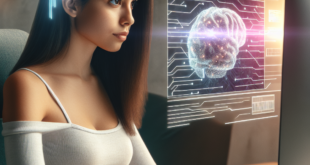
Google is experimenting with the use of AI to auto-generate YouTube video summaries, according to a notice on a support page dated July 31st. The page, which we spotted via Android Police, notes that these summaries will only appear next to a limited number of English-language videos, and will only be viewable by a limited number of users. They’ll appear on YouTube’s watch and search pages, and are intended to give a brief overview of a video’s contents without replacing its existing description written by a human.
“We’re starting to test AI auto-generated summaries on YouTube, so that it’s easier for you to read a quick summary about a video and decide whether it’s the right fit for you,” the support page reads. Android Police notes that users are typically able to sign up to participate in YouTube experiments over at YouTube.com/new, though participating in some tests may require a YouTube Premium subscription.
“Read a quick summary about a video and decide whether it’s the right fit for you”
YouTube’s experiment is one of a raft of generative AI initiatives happening at Google right now, as the company races to find uses for the emerging technology. Back at its developer conference in May, for example, the company announced a new Play Store feature which aimed to use generative AI to summarize app user reviews. But of course, that’s just the tip of the iceberg when it comes to Google’s AI efforts which include a new Search Generative Experience, and Duet AI tools for its Workspace productivity apps.
Other companies have also attempted to use AI to auto-generate summaries of online content. Artifact, for example, recently launched a summary feature for news articles.
If they end up getting a wider rollout, it’ll be interesting to see if the AI summaries impact how YouTube creators structure their videos. Every policy change and new feature introduced by the video platform can have wide-ranging effects on its content ecosystem, as creators attempt to please its all-seeing yet obscure recommendation algorithm. Who knows what will happen when creators have to make videos for both humans and Google’s AI to understand?

 Latest Breaking News Online News Portal
Latest Breaking News Online News Portal




